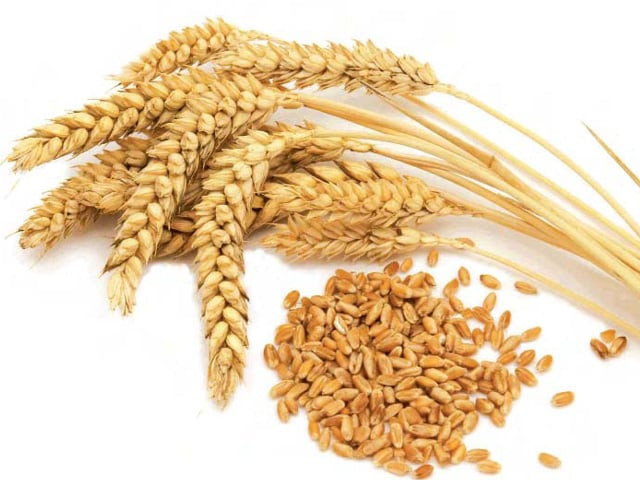Wheat transport: Mill owners call strike against ban
Food department condemns decision; wheat prices expected to jump.

Owners of flour mills in Sindh have announced a three-day strike beginning tomorrow (April 15), to protest against a provincial government’s ban on inter-district transport of wheat.
Production had been suspended in 50 flour mills in Karachi, while the rest of the mills had stocks for only one day, flour millers said. If wheat transport across districts was not permitted immediately, the city would likely face a wheat crisis, they said.
Speaking at a press conference at the Karachi Press Club on Wednesday, All Pakistan Flour Mills Association (APFMA) members set a deadline for the provincial government, threatening a country-wide strike if the ban was not lifted.
APFMA Sindh Zone Chairman Mian Mehmood said wheat prices were falling due to high production across Sindh, adding that a drop of Rs5 per kg was recorded in the last 20 days. The downward trend is expected to stop with the ban on the commodity’s movement.
They said the government was causing losses to the national exchequer by purchasing wheat on a large scale, while also increasing problems for the people through the ban on inter-district transport of wheat. Around 144 flour mills, 80 in Karachi alone, will remain closed during the strike.
Karachi Retail Grocers Association Adviser Farooq Memon warned that the ban and the consequent strike could push flour prices up by Rs4 per kg.
Memon said that continuation of the ban will mount pressure on small flour mills, which were selling the commodity at Rs33 per kg to shopkeepers and could result in the retail price reaching Rs35 per kg.
Flour mill owners expect wheat production to be three million tons in Sindh and 25 million tons in the country. Since domestic consumption stands at 20 million tons, the country is expected to have a surplus of five million tons this year. Millers said that an additional three million tons from last year were still in stock, which took the surplus to eight million tons.
The Sindh government has set a procurement target of 1.3 million tons for the current season, even though, according to the millers, the province does not have capacity to store more than 600,000 tons, while supply of sacks by the government has not been in line with the demand.
Strike termed unjustified
Meanwhile, the Sindh Food Department has termed the strike unjustified. Speaking to The Express Tribune, department spokesperson Munir Ahmed Jalbani said that the flour mills association’s demands were accepted in a meeting and calling a strike after the meeting of demands was deplorable.
Jalbani said the meeting was attended by the All Pakistan Flour Mills Association chairman and other office-bearers. The millers were told that the ban on the transport of wheat across districts was imposed in order to meet the purchase target of 1.3 million tons, assigned to the province by the federal government, he said.
He explained that the purpose of the ban, placed till April 30, was to benefit farmers, so any attempts to sell previously-stored wheat could be prevented. Through this ban, the government has ensured that only fresh wheat is purchased.
Flour mill owners assured the government of creating no problems if the required wheat was allowed to be supplied to the mills. The department responded by claiming that supply would not be stopped if proper documents were presented at the time of checking, he said.
Mill owners were assured that the provincial government had ample stocks of wheat and they would be supplied according to their allocations. “They just are not showing patience even for one week, it seems as if they have other objectives,” added Jalbani.
Published in The Express Tribune, April 14th, 2011.



















COMMENTS
Comments are moderated and generally will be posted if they are on-topic and not abusive.
For more information, please see our Comments FAQ